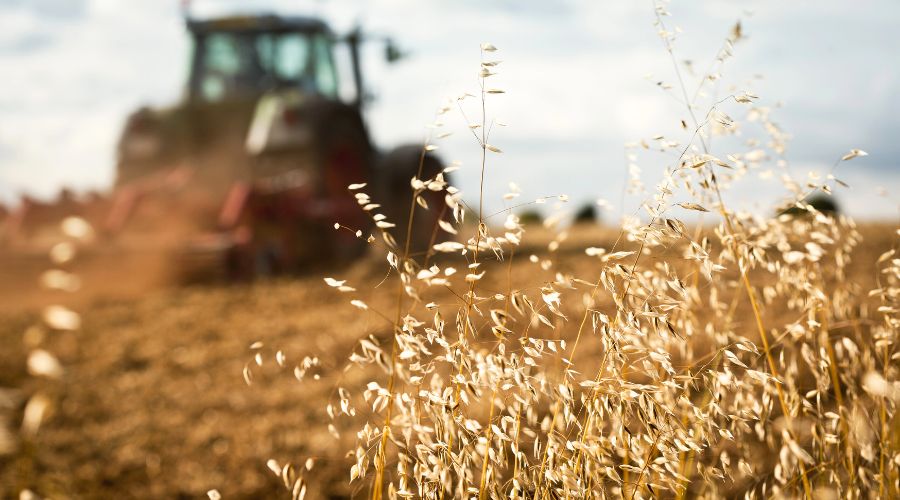Average farm business income drops for almost all types of farms
14th November 2024
In 2023/24, average farm business income was lower for all farm types except for specialist pig farms and specialist poultry farms, Defra has just revealed.

The fall in income followed exceptional highs for some farm types in 2022/23.
For cereal farms, following two years of exceptional highs, farm business income fell by 73% to £39,400. For general cropping farms, average income was 24% lower at £95,300. A combination of lower output prices and yields were a key factor for both farm types, Defra said.
On dairy farms, following two very strong years for the sector, average farm business income was 68% lower at £70,900, with a fall in the farmgate price of milk being the primary driver.
On lowland grazing livestock farms, average farm business income fell by nearly a quarter to £17,300, driven by lower output from crop and sheep enterprises. For grazing livestock farms in less favoured areas, higher fixed costs were only partially offset by an increase in output, at £23,500 average income was 12% lower than 2022/23.
However, average farm business income increased to £135,800 for specialist pig farms, reflecting higher prices and throughput. On specialist poultry farms, farm business income rose by nearly a quarter to £143,600, with higher output from egg enterprises recognised as the main driver.
The progressive reduction to the Basic Payment was introduced in 2021. In 2023/24 across all farm types, the average net payment received was approximately £18,300. This was 21% lower than 2022/23 and accounted for around 40% of farm business income.
Across all farm types, net income from agri-environment activities increased by an average of 14% to £10,600.
Read the report here.
Need for profitable farm businesses

Responding to Defra’s farm business income figures, NFU president Tom Bradshaw said that this data “paints a stark picture” of the challenges facing many farmers, with rising input costs, significantly lower commodity prices, a reduction in direct payments and one of the wettest winters in decades leaving many businesses worse off.
He added: “When these figures were first estimated back in March 2024, we said that we needed a government that would create policies to support British agriculture and help farmers and growers to build financial resilience into their businesses.
“Profitable farm businesses are essential if we are to deliver what the country needs; food security, with food produced to world leading standards and environmental protection.
“Instead, we have seen the opposite. The recent Budget announcing changes to Agriculture Property Relief (APR) and Business Property Relief (BPR) have left farmers reeling. Many will be faced with a tax bill of millions. Some will be forced to sell all or part of their farm to raise the funds.
“These are the working people of our countryside, the majority of them working for little profit but happy in the knowledge their life’s work will mean they can pass the farm on to the next generation. This tax threatens to change all that.
“It threatens our food security and with the compounded impact of National Insurance and National Living Wage changes, it threatens to push up food prices for consumers.”
Farmers need fair, just and joined-up treatment

CEO of the Nature Friendly Farming Network (NFFN), Martin Lines, added that one of the biggest problems facing farming today is the lack of profitability for the goods and services farmers provide.
“After two extraordinary years of higher-than-usual farm business incomes for many in the sector, the relative drop in income revealed by these statistics, particularly for cereal and dairy farmers, is concerning.
“While there are multiple reasons for this, from global conflict to climate change to systemic issues within the food system, it hammers home that one of the biggest problems farming faces is lack of profitability for the goods and services farmers provide.
“Farmers need fair, just and joined-up treatment by the government to tackle this, including fairer prices for their produce and better treatment across supply chains, along with international trade deals that don’t undercut them by allowing imports from countries with lower welfare and environmental standards. Farmers also deserve to be properly recompensed for all the public goods their land provides – like flood defences and habitat restoration.
“Working with nature and investing in our landscapes is absolutely crucial. As we face extreme weather events and the havoc these are already wreaking on harvests, it should be clear by now that maintaining food security and protecting nature cannot be separated.
“Nature-based solutions and regenerative approaches to agriculture, especially alongside strategic land use,are a key tool to help farms remain profitable and successful as businesses while adapting to climate change and keeping the nation fed.”
Read more farm business news.



